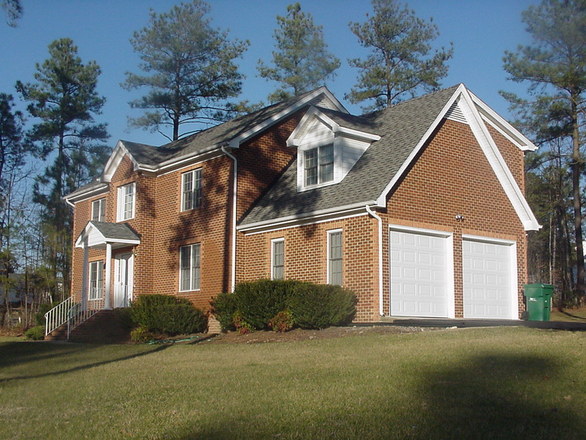If you’ve already dabbled in real estate investing and want to expand your income, buying a second rental property can be a pretty exciting step. The idea of growing your rental portfolio is super appealing, but there’s a bit more involved than just repeating what you did for your first property. Timing, money, and game plan play much bigger roles as you scale up. Here’s an all-in-one look at when and how to buy your second rental property so you can keep moving forward without unnecessary stress.

What Makes Now the Right Time for a Second Rental Property?
Jumping into that second investment is a big move, so making sure the timing lines up is really important. There are a few signs that can help tell you when you might be ready to press on:
- Steady Income from Your First Rental: If your first property isn’t just covering costs but also bringing in a little extra cash each month, that’s a good sign you’ve figured things out.
- Emergency Fund is in Place: Life throws surprises at landlords, so having cash set aside for repairs and vacancies shows you’re set up well.
- You Have Equity or Savings for a Down Payment: Whether you make use of the equity in your first property or you’ve managed to save a fresh chunk of money, having a solid down payment—typically 20-25% for investment properties—makes a difference.
- Good Credit Score: Lenders will check this again, so make sure your financial habits have kept your credit in good shape since your last purchase.
- Confidence in Managing Tenants and Repairs: If you feel comfortable handling issues like late payments, turnovers, or clogged drains, you’re in a better spot for a new investment.
It’s also a smart idea to look at the real estate market, both in your area and in any markets you’re checking out. Comparing local trends and researching rental demand can help cut down on risk. Looking at vacancy rates, job growth, and property appreciation helps you track down the most promising areas.
Preparing Your Finances for Another Investment Property

Adding a second rental means lenders will look extra closely at your ability to afford more debt. Here are some recommendations to get in order before you start calling realtors or making any offers:
- Debt-to-Income Ratio: Your monthly debt payments divided by monthly gross income should generally stay below 43%. More rental income helps, but lenders often count just 75% of that revenue to be safe.
- Down Payment Cash: Second loans usually require a higher down payment, so have at least 20-25% set aside (possibly more for multiunit properties).
- Reserves: Most lenders want to see several months’ worth of cash reserves, sometimes six months of full mortgage payments for each property you own.
It’s worth checking with a mortgage broker who knows about investment properties. These folks can help you understand your financing choices, whether you’re looking at conventional loans, cash-out refinancing, or even home equity lines of credit (HELOCs) used for investment purchases. You might also dig into portfolio loans, private lenders, or even teaming up with another investor to lock in your next purchase. As you look over your finances, remember to factor in insurance, property taxes, and HOA fees, as these can impact your bottom line.
Choosing Where to Buy: Location, Location, Location

Picking the right spot for your second rental is about more than luck. You might feel familiar and comfortable investing close to home, but casting a wider net sometimes brings better returns:
- Rental Demand: College towns, military bases, or areas with lots of jobs tend to bring in consistent renters.
- Price-to-Rent Ratios: A lower purchase price with solid rent means more cash flow. Markets with high home prices and low rents aren’t as investor-friendly.
- Property Taxes and Local Laws: Every city handles things like permits, landlord tenant laws, and taxes differently. Make sure you know the ins and outs before committing.
- Future Development: Neighborhoods with new schools, retail, or parks often attract better tenants and see appreciation over time.
Some investors actually buy out of state, especially if their home market is too pricey. If you’re considering this, connecting with a good local real estate agent and property manager is Very important. It’s also a good idea to read up on the local rental rules and find out how landlord friendly the area is. Checking out the neighborhood in person, if you can, gives you a solid idea of what kind of tenants you’ll attract.
Lessons From Your First Rental: What to Do Differently This Time

Your first rental property probably taught you a lot, maybe some lessons the hard way. Here are a few adjustments most people find helpful when moving up to a second property:
- Better Screening: Fine tuning your application and tenant screening process (credit checks, background checks, references) helps avoid unpaid rent and unit damage.
- More Detailed Bookkeeping: As your rental business grows, good records make everything easier, from taxes to finding patterns in your profits and costs.
- Outsourcing Repairs or Property Management: Handling every clogged toilet yourself can get overwhelming. Looking into a property manager or trusted contractors pays off if your time is limited.
- Clear & Concise Lease Agreements: Having everything in writing with clear rules (late fees, rules on pets, etc.) helps avoid confusion and legal headaches.
Jotting notes after tricky situations or chatting with other landlords in local groups can make your next round a bit smoother. It helps to track repeat maintenance problems, which makes budgeting for future repairs much easier. If you struggled with communication last time, try setting some standard texts or email templates for responding to tenants.
At this point, when considering an additional investment property. Its important to have SOLID systems in place. Whether you have a In-house team to handle accounting, maintenance, and communication issues. Or you chose to hire a Property Management company to handle ALL the Daily operations of the Rental business on your behalf.
This is not the time to continue being a “SOLO” Landlord. This is the time to become More Efficient and Maximize profits based on selecting the Best Deal that fits your criteria.
Common Challenges and How to Handle Them

Owning more than one rental is rewarding, but it also brings new challenges to the table. Here’s a look into some common issues:
- Financing Roadblocks: Lenders get pickier about debt and reserves with each property. Building a strong savings habit helps, and exploring different lending programs or partnerships can open doors when banks say no.
- Vacancies: Staggering lease endings and advertising units early (with great photos and clear info) make turnover less stressful. You can also network with local employers or relocation agencies to get leads on new tenants.
- Unexpected Repairs: Even with newer properties, things break and accidents happen. Setting aside 10% of your gross rental income in a maintenance fund can help you handle those surprises.
- Time Management: Setting up routines, like maintenance requests through email or an online portal, saves hours, especially if you keep properties organized in a simple spreadsheet or app.
- Burnout: Being honest about your limits is really important. Sometimes hiring a property manager or just taking a weekend off helps you avoid getting worn out.
Vacancy and Turnover
Even with perfect tenants, there will be times when your unit sits empty. Reducing this gap is key to keeping income steady. Offering incentives, like a free month’s rent for a quick move-in or allowing pets (with pet rent), makes your place stand out. Posting your rental on multiple sites and using professional photos also make a difference. Responding quickly to inquiries can set you apart from other landlords and help you fill vacancies faster. Having flexible showing times or virtual tours can also attract more applicants.
***These are common issues that a GOOD Property Management Team can handle to reduce vacancy time.
Repairs and Maintenance
With more properties comes more repair calls. Keeping good contact with handymen, or even setting up a relationship with a property management company, is a practical move. Consider routine inspections once or twice a year to catch small problems before they grow. Scheduling seasonal tune-ups for major systems like HVAC units, Hot water Heaters, main water lines, etc. helps avoid costly emergencies and keeps tenants happy.
Simple Tips for Growing Your Portfolio Responsibly
Scaling up doesn’t mean growing as fast as possible, it’s about taking steps at a comfortable pace. Here are a few practical ways to expand without feeling overwhelmed:
- Set clear financial goals for each property, like minimum cash flow per month.
- Use software or apps for rent collection, accounting, and reminders.
- Network with other landlords and real estate investors to learn from their wins and mistakes.
- Keep up with local market changes, like rent control laws or property tax updates.
- Schedule time for yourself to step back and make sure this is still something that you find Value in doing and worthwhile for your Time.
- Regularly review your portfolio performance; sometimes selling an underperforming property helps you free up cash for better opportunities.
Managing more properties gets easier with routines and planning. Eventually, what once felt overwhelming becomes second nature.
Frequently Asked Questions
Here are a few you might find useful:
Q: Can I use the rental income from my first property to qualify for a second mortgage?
A: Most lenders will count a portion (usually 75%) of your documented rental income to help qualify you for another loan. Make sure that income shows up on your tax returns or in formal lease agreements. Keeping your records organized makes it much easier when applying for financing.
Q: Do I need a separate LLC for each rental property?
A: Not all landlords use LLCs. There are a variety of options on how to hold each property you acquire. For specific guidance, its best to speak with a Real Estate Attorney Or a Reputable CPA that specializes in Real Estate investing.
Q: What happens if I can’t find tenants for my second rental?
A: Planning for some vacancy months when you budget is always smart. This is when you need to consider outsourcing these tasks to either a Real Estate Agent who does Marketing for Tenants or once again, adding a Property Management company to your Power Team.
Final Thoughts
Buying your second rental property can pay off in a big way, but it takes a mix of planning and flexibility. Patience is key, as you’ll want to make sure your finances are lined up and you’re comfortable with the extra responsibility. Using what you’ve learned from your first rental, staying organized with your numbers, and keeping your eyes on the local market will help set you up for more wins down the road. There’s always more to track down, and with each property, your confidence and experience will only keep growing. Real estate investing is a Marathon journey, NOT a Sprint, and every step you take prepares you for your Next investment project.

